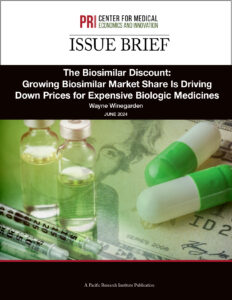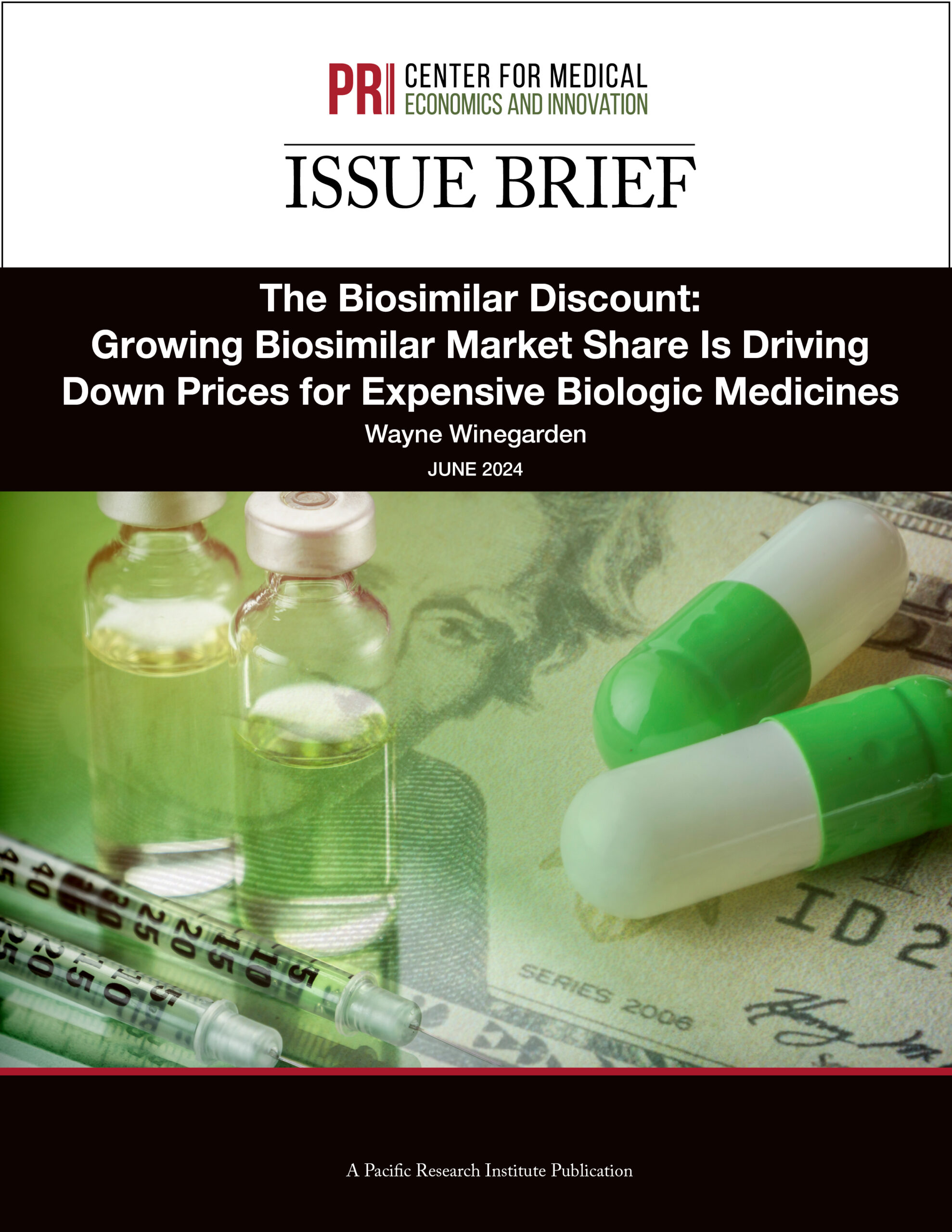 A new brief released today by the Center for Medical Economics and Innovation at the nonpartisan Pacific Research Institute provides the latest evidence that biosimilar competition is saving patients billions – and additional competition would increase savings even more.
A new brief released today by the Center for Medical Economics and Innovation at the nonpartisan Pacific Research Institute provides the latest evidence that biosimilar competition is saving patients billions – and additional competition would increase savings even more.
From 2019-2023, patients saved $15 billion from biosimilar competition. Had there been competition during the same period for two other biologics, Humira and Enbrel, patients would have saved another $13 billion, for a total of $28 billion.
“The growing market share for biosimilars since 2019 shows that promoting more competition lowers prices and brings significant savings to patients and taxpayers,” said Dr. Wayne Winegarden, director of PRI’s Center for Medical Economics and Innovation and the brief’s author.
The CMEI brief found that, for the entire biosimilars market (including Humira and Enbrel, which currently do not have biosimilars competition):
- Total sales revenues in inflation-adjusted dollars are 7.5 percent lower today compared to 2019, despite inflation-adjusted increases in sales revenues for Humira and Enbrel.
- Total unit sales for all biologic medicines are 4.5 percent higher in 2023 compared with 2019, showing that falling inflation adjusted prices are driving the savings.
- Inflation-adjusted unit prices dropped from $1,396 in 2019 to $1,174 in the first quarter of 2024.
In the competitive biosimilars market (excluding Humira and Enbrel):
- Biosimilars represent two-thirds of total sales in the first quarter of 2024.
- Total sales revenues in inflation-adjusted dollars are 51 percent lower from 2019 through 2023, even though sales are 1 percent higher.
- Inflation-adjusted unit prices have dropped by a whopping 56 percent from 2019 through the first quarter of 2024.
While there is still no biosimilar competition for Enbrel, market constraints caused by policy-driven inefficiencies in the broken drug rebate system are subsiding for biosimilar competitors to Humira. CVS Caremark recently began to cover Humira biosimilars. This change shows the potential for patients to realize even more savings from additional competition.
Winegarden notes that, as the lack of biosimilar competition for Humira to date shows, the current drug rebate system incentivizes insurers to give preference to higher cost originator biologics over lower cost biosimilars. Additionally, drug rebate walls use volume-based rebates to lock out lower-priced competition, driving up patient costs.
“To increase drug affordability for all patients, policymakers must make it a priority to end misguided laws that enable drug rebate walls and other policy-driven roadblocks that prevent patients and taxpayers from realizing the full savings potential from biosimilar competition,” Winegarden said.
The Pacific Research Institute (www.pacificresearch.org) champions freedom, opportunity, and personal responsibility through free-market policy ideas. Follow PRI on Facebook, Twitter, and LinkedIn.


